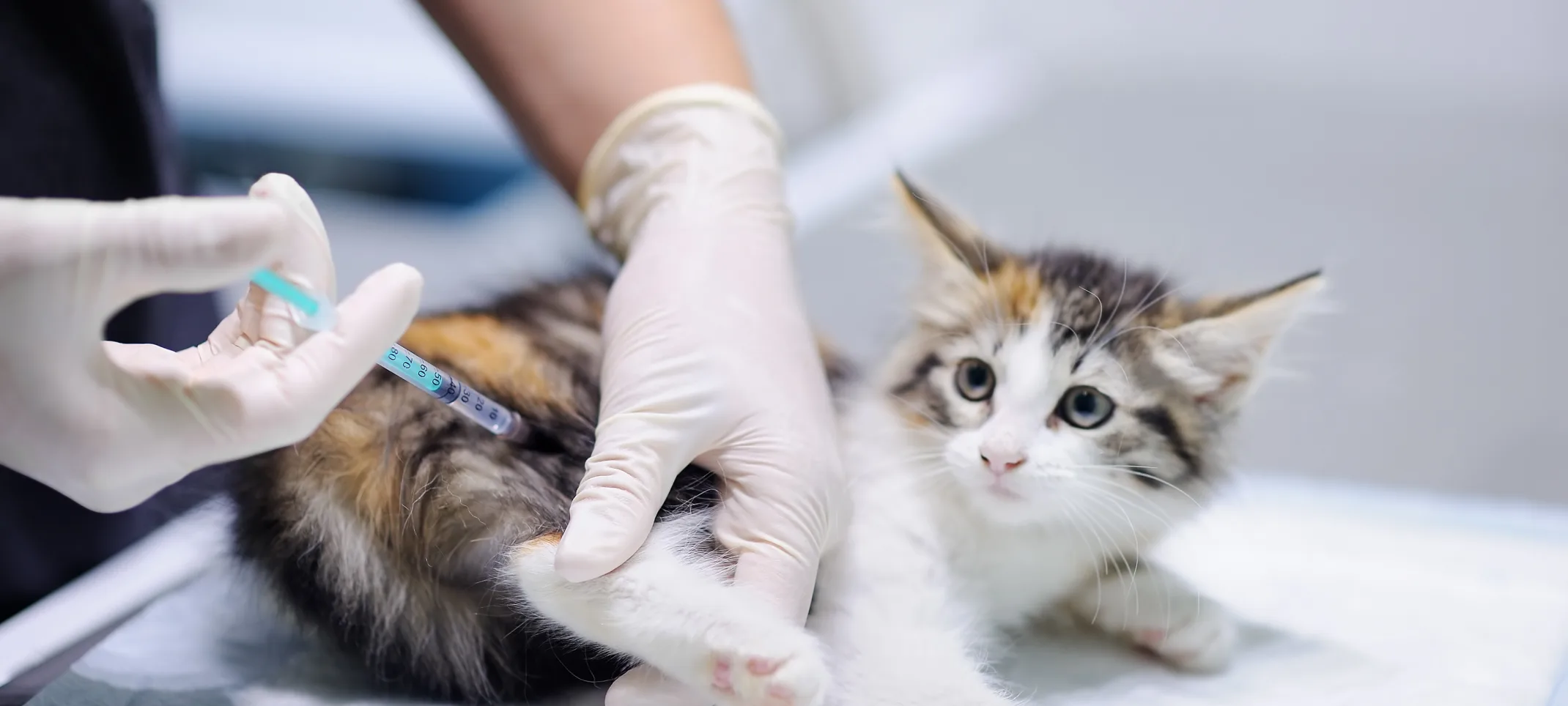Animal Hospital of Waynesville
Vaccines and Your Cat

There is nothing better than curling up on the couch with your fluffy feline friend and enjoying a good movie or reading the newspaper. As a feline friendly practice, we understand the love you have for your pet. We are advocates of keeping our four-legged friends, canine and feline, as healthy and as protected as possible. As an owner, we know you want to do the same! Just like dogs, cats need certain vaccines to help keep them healthy and happy so they can live long lives.
Vaccines are designed to stimulate the immune system by introducing antigens, which look like disease-causing organisms, so that it can begin developing antibodies which will help fight the disease if the body is ever exposed to it. The core vaccines for cats are a little different than the vaccines recommended for dogs. Both species require a rabies vaccine by law to keep them protected, as well as protecting their owners from this deadly virus. There are certain diseases that are preventable if the correct vaccine regimen is followed. The American Animal Hospital Association has set up guidelines to help veterinarians choose the correct vaccines for your feline friend.
The core vaccines for cats are: rabies, feline viral rhinotracheitis, calicivirus, and panleukopenia (FVRCP). We primarily use an intranasal vaccine because we feel it is safer for cats and is given to both kittens and adults. We recommend that all kittens receive the feline leukemia vaccine the first year of life. After the first year, depending on the cat’s lifestyle and risk factors, the feline leukemia vaccine may not be needed.
The vaccine regimen will largely depend on their lifestyle. Indoor-only cats are not exposed to some of the viruses and diseases that outdoor or indoor/outdoor cats are exposed to. It is recommended and ideal for kittens that are anywhere from 4 to 16 weeks of age to get the kitten series of vaccines, meaning they get boosters of the core vaccines every 2 to 3 weeks until they have turned 16 weeks old. Once your kitten is 12 weeks old, they should be vaccinated for rabies. We use a rabies vaccine made particularly for cats, avoiding the adjuvanted rabies vaccines that may sometimes be associated with rare, but dangerous tumors. After they have finished the kitten series, they should be safely protected for a year. At that point, we can assess their lifestyle to decide what vaccines are necessary.
Cat owners are often concerned about which vaccines to use to protect their pet and the possibility of a reaction to the vaccine. Manufacturers have greatly enhanced the safety and effectiveness of the vaccines. Your cat should have a complete history and physical examination by a veterinarian before vaccines are administered to allow your veterinarian to take into consideration the particular health and lifestyle risks as we determine the best vaccine schedule for your cat. For any questions regarding any of the diseases/viruses that your cat could contract and possibly spread and the corresponding vaccines, you can contact your local veterinarian.

